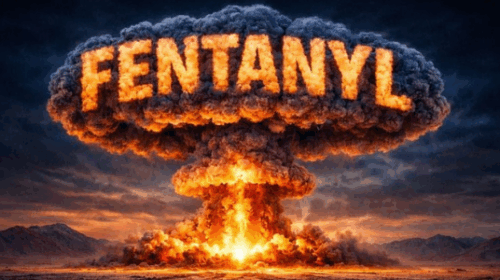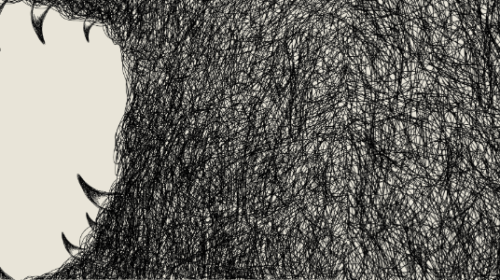“Might as well face it; you’re addicted to love.” We promise to refrain from any further Robert Palmer puns for the duration of this article.
Valentine’s Day is here, and as our minds turn increasingly to hugs, kisses, and chocolate, we all have our own opinions on the matter. Some of us will spend our month’s wages on candy and karats; some will let the day pass by without much ceremony; some will curse the holiday and the coupled-versus-lonely comparison that it ultimately engenders. But the most visceral Valentine’s naysayers can take heart (chocolate or otherwise) in the reality that our responses to love, affection, and sweets are, to an extent, out of our control. There is more than one way for addiction to affect relationships. Whether you’re married, in a committed relationship, dating, or sharing your bed with a pile of unfolded laundry, love is a matter of chemistry. On a darker note, this chemistry shares similarities with how our bodies respond to drugs and alcohol.
Can You Be Addicted to Love?
Yep. Although it is not recognized by the DSM-5, love addiction can have the same negative lifestyle effects as other types of dependency, and it has a lot to do with what happens in the brain. Also called “pathological love,” love addiction is defined as a pattern of behavior characterized by a maladaptive, pervasive, and excessive interest toward one or more romantic partners, resulting in a lack of control, the renounce of other interests and behavior, and other negative consequences. More people claim to be addicted to love than you might think. Research puts the prevalence of love addiction at between three and 25 percent of the population. The condition differs from codependency because it confines the existence and application of maladaptive behaviors to romantic relationships rather than broader familial and social connections.
What Is an Addictive Relationship?
Some of the common signs you may be addicted to love include:
- Inability to distinguish between sexually intense experiences and genuine, substantive affection.
- Needing to be in a relationship to feel “whole” or valid.
- Neglecting other areas of your life in the pursuit of romantic validation.
- Looking for a new partner while still in a committed relationship.
- Constantly struggling to maintain sexual intensity within a relationship.
- Faking interest or sacrificing your own happiness just to be in a relationship.
Love addiction is generally diagnosed after a prolonged obsessive preoccupation with romantic or relationship-driven pursuits. It’s often treated through a regular course of counseling and occupational therapies used to treat associated aspects of the condition like depression or anxiety disorder.
A Little Thing Called Oxytocin: The Chemistry of Addiction and Relationships
When you start a relationship or any type of romantic endeavor, it triggers a widespread hormonal and neurobiological reaction that dictates response and behavior (there’s a reason why so many of us make fools of ourselves and why romcoms are so successful). One of the primary drivers of this phenomenon is a neuropeptide called oxytocin. Oxytocin plays a role in reward, stress, social affiliation, learning, and memory processes. Oxytocin is produced by the hypothalamus and is associated with social bonding, trust, and forming relationships, contributing to feelings often described as ‘warm and fuzzies.’ We experience rushes of oxytocin when we cuddle with our partners, hug our dogs, do things for others, have sex, work out, and share our affection.
Know What Else Triggers Oxytocin?
Playing and listening to music has also been shown to increase oxytocin and make us feel better, a phenomenon Recovery Unplugged experiences first hand on a daily basis with the clients we treat. Data published by the National Institutes of Health (NIH) revealed that 20 open-heart surgery patients in a study who listened to music while on bed rest had higher oxytocin levels and felt more relaxed. Another 2015 study showed that musical improvisation among jazz musicians triggered markedly higher oxytocin levels during their sessions. Oxytocin has also been shown to rise in people after they complete singing lessons, according to other data.
Connecting the Dots: Oxytocin, Love, Addiction and Your Relationship
In addition to oxytocin, love, sex, and general affection also increase dopamine and serotonin, two neurotransmitters that also play a key role in substance abuse. Love and affection increase levels of dopamine and serotonin, neurotransmitters associated with pleasure and happiness. While these responses can have some similarities to those triggered by drugs like heroin or cocaine, the mechanisms and effects are significantly different. What is different is the incredible unregulated surge that comes when you use drugs, something that no natural behavior can possibly replicate. Dopamine is not the sole cause of addiction, but it’s a primary motivator.
The National Institute on Drug Abuse has conducted extensive research on targeting oxytocin flow to treat substance use, claiming the oxytocin system is itself altered by acute or chronic exposure to drugs of abuse. They point to a growing body of data illustrating the influence of oxytocin in multiple drug reactions, including:
- Cocaine – Acute cocaine use has been found to increase oxytocin in the dorsal hippocampus, the area of the brain responsible for contextual learning and memory involved in drug dependence. Reciprocally, chronic cocaine use has been linked to decreased oxytocin levels, signaling a decline in joy and pleasurable feelings as use persists.
- Opioids – Chronic morphine administration has been shown to result in increased oxytocin receptor binding in the amygdala, piriform cortex, medial septum, and anterior olfactory nucleus; and a decrease in levels in the hypothalamus.
In general, chronic drug use appears to decrease oxytocin synthesis while also causing serious serotonin and dopamine imbalances in long-term users. While love addiction and drug addiction share some of the same chemical origins, the reactions created by prolonged and untreated substance abuse are far more serious and trigger very real physical and psychological withdrawal symptoms.
Love Is Blind…, and So Is Love Addiction
Love addiction and drug addiction can also find a point of connection in relationships with partners who are battling substance use disorder. The actions we take to appease our partners; the rationalization of behavior; the way we sacrifice our own safety, dignity, and well-being to feed our addictions or theirs; how we often don’t know what’s hurting us at the moment or how to fix it; and how our partners can either make or break our recovery and mental health. Codependency in intimate partnerships can also perpetuate love addiction and can lead to the enabling of substance use disorder. When we’re desperate for love, it can be hard to “rock the boat” and get our partners to do something they don’t want to, even when it’s good for them.
How Is Addiction Impacting Your Relationship?
No matter how you choose to celebrate or embrace Valentine’s Day this year, Recovery Unplugged wants you to know that you’re loved, honored, and valued. While chemistry plays a role in the development of both love addiction and drug addiction, the way back begins with asking for help. If you or your partner are battling addiction or mental health issues, whether it’s related to your relationship or anything else, we’re here to help you love yourself and each other again. You don’t have to let your relationship with someone else, or with drugs or alcohol, define you. These issues are often complex and interconnected, and while the road to recovery may be different for everyone else, it all begins with recognizing that you’re worth saving. Happy Valentine’s Day.






















